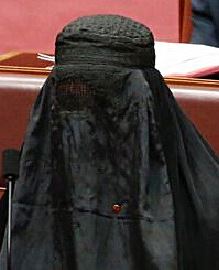Title: Switzerland’s Burqa Ban: A Reflection on Cultural Identity and Women’s Rights
As 2023 unfolded, Switzerland made headlines for enacting a significant law prohibiting the wearing of burqa coverings in public spaces. This legislative decision stemmed from a referendum in 2017, where Swiss voters overwhelmingly supported the ban. Despite the backlash from progressive factions within the government, who labeled the ruling as a form of racism, the democratic principle in Switzerland prevailed, reinforcing the importance of public sentiment in shaping national policy.
The Swiss People’s Party (SVP) was the force behind this legislation, positing that full facial coverings equate to “soft extremism.” While the intention was to address societal safety and integration concerns, critics, including Amnesty International, vehemently argued that this ban infringes on women’s rights, particularly regarding freedom of expression and religious practices. One must ponder—are we genuinely protecting rights by restricting the choices of women, or are we perpetuating a cycle of exclusion?
Switzerland’s actions are not unprecedented. The wave began in Europe with Belgium and France’s bans in 2011, setting a precedent that has since echoed through the likes of Bulgaria, China, Austria, Denmark, and Sri Lanka. What does this collective movement signify for modern societies grappling with cultural diversity amid fears of extremism?
At Extreme Investor Network, we encourage our readers to think critically about these developments. While some argue that cultural traditions should remain intact, and public spaces must reflect the values of the dominant society, we must also recognize the nuanced realities of a globalized world. It’s essential to establish a balance between cultural preservation and the rights of individuals to express themselves through attire, which includes religious garments.
Surprisingly, the physical expression of culture and identity in public settings, such as wearing ski masks or heavily tinted car windows, is often restricted—not necessarily because of individual choices but due to prevailing societal norms and security concerns. This raises a crucial question: Does the right to wear what one wishes diminish when it conflicts with societal values and safety?
At Extreme Investor Network, we believe that as nations struggle to maintain cultural integrity amid open border policies and increasing diversity, the discourse must evolve. The majority’s voice in the Swiss referendum underscores an instinctive desire to uphold national identity, yet we should challenge whether such laws ultimately foster unity or division.
The punitive measures associated with the burqa ban, including a fine of 1,000 Swiss francs, invite further discussion on what constitutes racism versus an assertion of national values. Are such fines an effective deterrent, or do they deepen societal rifts?
As we navigate these complex questions, we encourage our readers to explore not only the political ramifications of such bans but also their economic implications. How do these regulations affect tourism, local businesses, and international perceptions?
While the burqa ban proclaims a stand for cultural integrity, the broader conversation must include the diverse voices and rights that make up our increasingly interconnected societies. Visit us at Extreme Investor Network for more insights into global economic policies and their impacts on cultural expressions. It’s imperative to stay informed in an ever-evolving world where the intersections of culture, rights, and economy shape our future.

